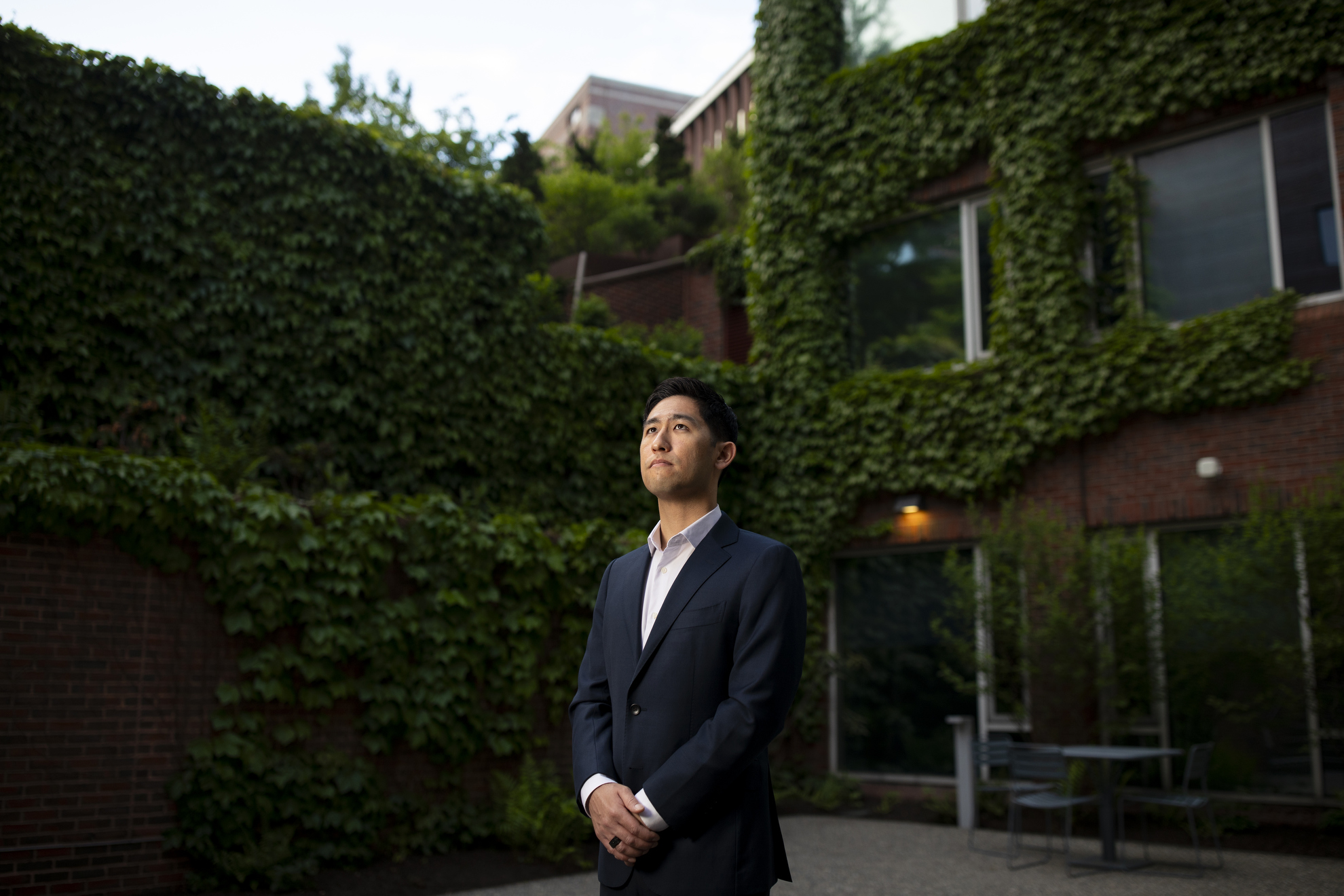
Rupen Dajee.
Veasey Conway/Harvard Staff Photographer
Frustrated fighting wildfires in L.A., he resolved to build better tools
Rupen Dajee launches tech startup to aid emergency responders, leveraging lessons learned firsthand as EMT, firefighter
Part of the Commencement 2025 series
A collection of features and profiles covering Harvard University’s 374th Commencement.
Had it not been for wildfires, Rupen Dajee may never have gone to graduate school.
They’re a seasonal occurrence in his home state of California, where he was a firefighter-paramedic before coming to Harvard Kennedy School and MIT’s Sloan School of Management to complete a dual M.P.A./M.B.A. degree program. He’ll graduate from the Kennedy School this week.
After college, Dajee became a licensed emergency medical technician working on an ambulance in Los Angeles in the area once known as South Central. What started out as a rewarding side job became a passion. So he went to paramedic school and trained as a firefighter, joining a small rural fire department in the mountains outside of the city.
There, Dajee experienced the technology inequities that rural emergency responders like firefighters have to overcome just to do what is already a difficult job.
“I would get sent out to wildfires during the summers and experience communications issues,” he said. “It’s a really tough technological environment to operate within and so, I thought, ‘What can I do to help with that?’”
“I would get sent out to wildfires during the summers and experience communications issues. It’s a really tough technological environment to operate within and so, I thought, ‘What can I do to help with that?’”
Dajee started a technology venture called Twisted Kelp that develops tools to help solve some of the field challenges facing wildland firefighting, emergency services, and disaster management.
The infrastructure that enables emergency communications to work can fail under harsh conditions or may be insufficient for the vast expanses and difficult rural terrain, forcing firefighters to make some tough calls.
“You need to start thinking, ‘Do we send people down there, do we not because we’re not able to support adequate communications? Is that a vital area we still have to send people into even if we can’t cover it?’ There can be gaps in areas of opportunity where technology can help to solve those problems, to enable greater capabilities.”
The company produces satellite tracking and communications solutions with an online interface that overlays fire maps and infrared data so firefighters can see where personnel and equipment are positioned or needed. Another product enables emergency radio service using Internet Protocol packets. The company also developed a digitized version of a pocket-size booklet called the Incident Response Pocket Guide that firefighters often carry on them to reference instructions on the fly for an array of scenarios.
Because technology advances for the public sector are often longer-cycle and can affect a much broader scale than the private sector, Dajee said he realized it would take more than an M.B.A. to make his company truly effective. The focus on leadership and problem-solving on a grand scale at the Kennedy School and Sloan’s emphasis on principled business innovation were motivating, he said.
“Leadership and management shouldn’t just be about gross revenue maximization,” Dajee said. “It’s about the people, their context, and the environment,” as well as “trying to push the boundaries of what’s possible and what good that you can bring into the world with business.”
“It’s about the people, their context, and the environment.”
After Commencement, Dajee will return to L.A., where he spent three weeks in January fighting the devastating wildfire in the Pacific Palisades, an area he had lived near for many years.
“I knew almost every street where the fires were burning and had driven up and down those streets for a better part of 10 years,” said Dajee. “It was very surreal seeing these places that I knew, these homes that I had passed by many times and recognized, burned to the ground.”
Dajee said he’s immensely grateful to have had an opportunity to study at Harvard and MIT when so few of his colleagues in emergency services have chosen to attend graduate school. Most have a “deep passion” for what they do but struggle with systemic issues facing emergency healthcare and rural emergency services in the U.S., he said.
“It’s important that the work they do is recognized because they put their lives on the line on a daily basis in the harshest conditions to keep others safe, with long-term consequences that are often unsupported,” he said. “And while it is great that everyone thanks their first responders when they have a need for them, it is also important to remember that the work continues in the background even when they don’t.”




